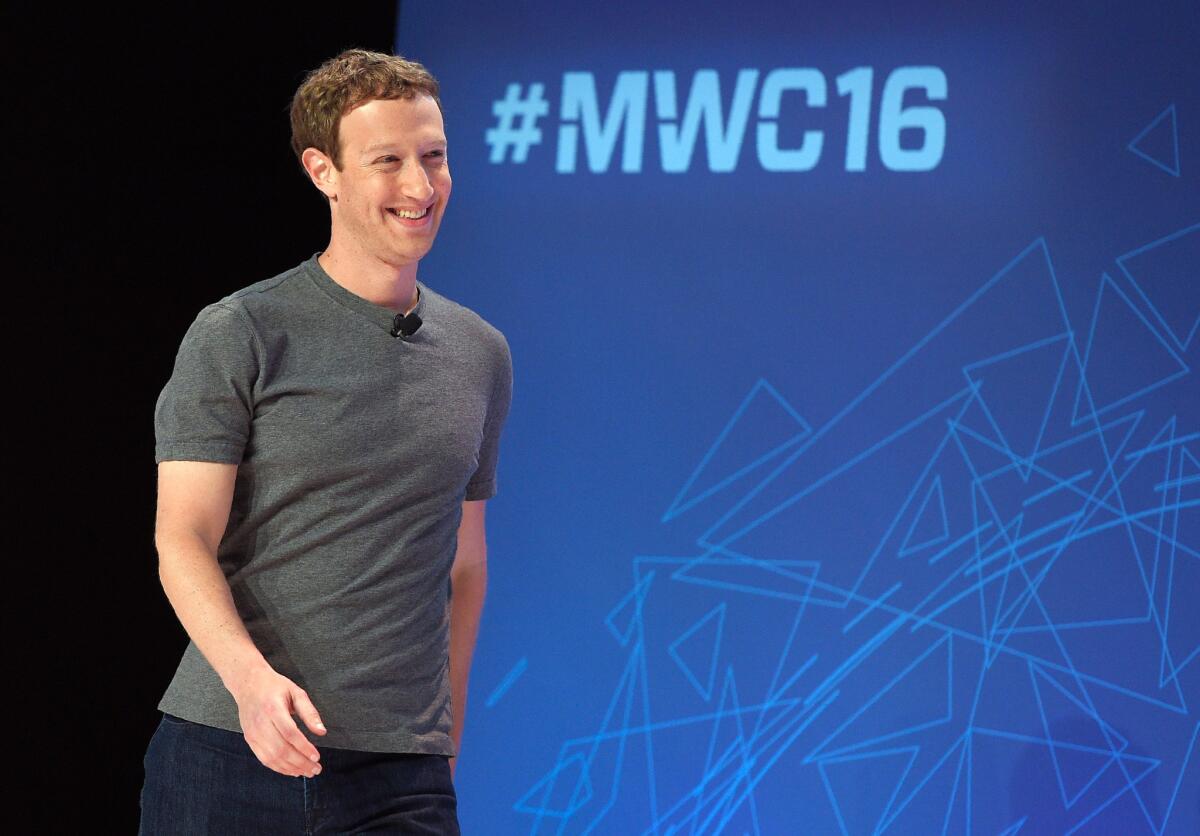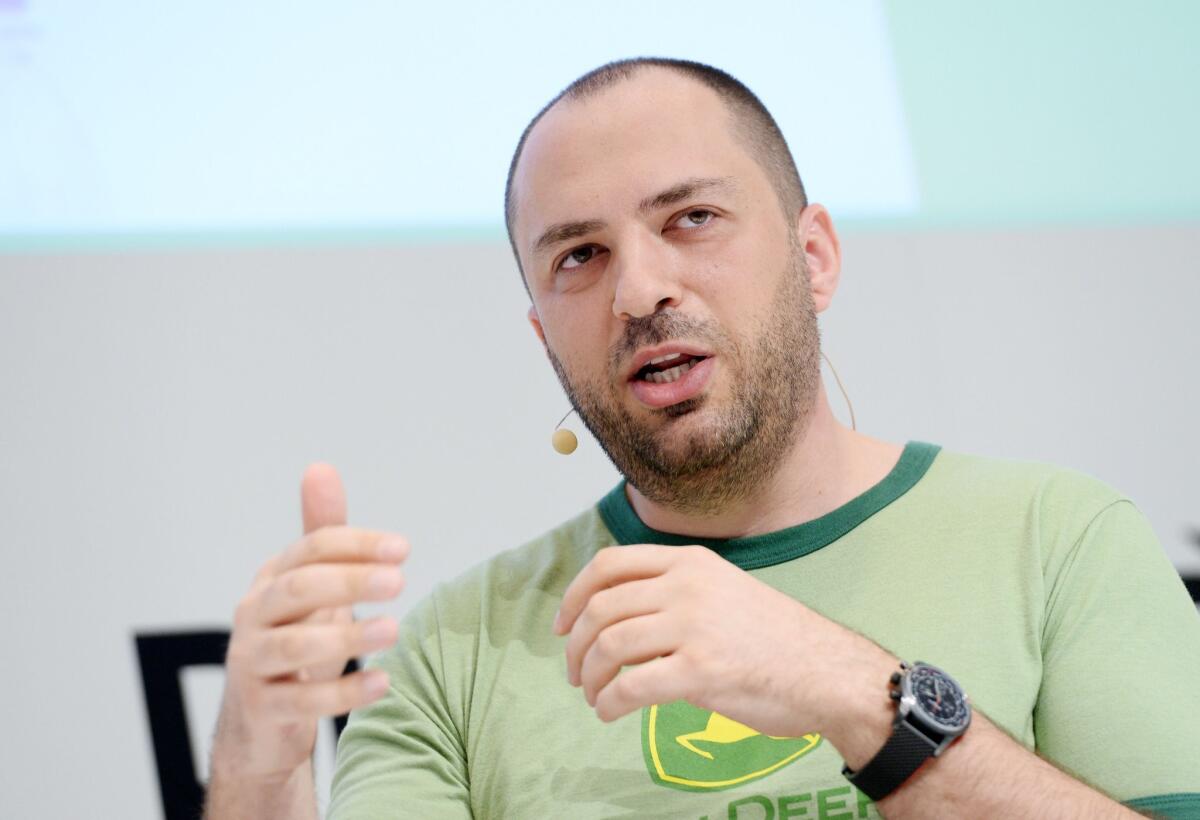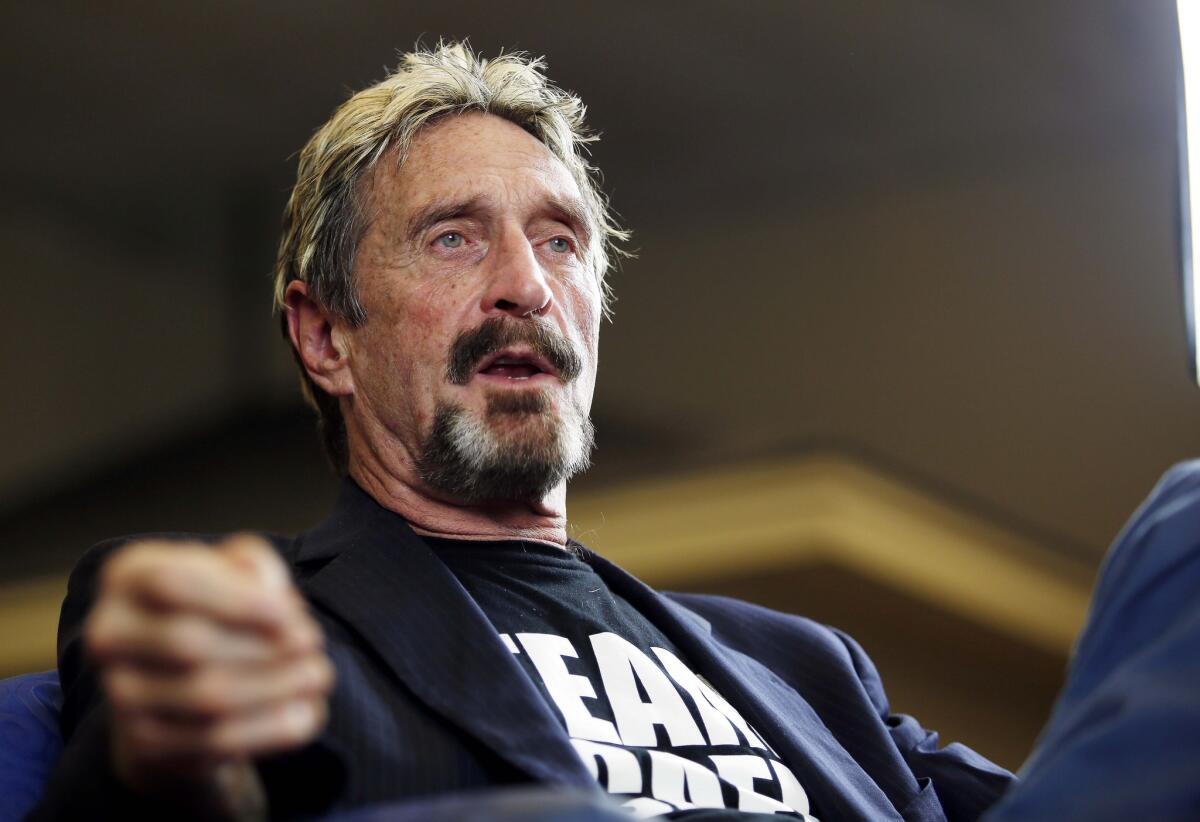Apple vs. FBI: Bill Gates, Mark Zuckerberg, John McAfee and more are taking stands
As Apple Inc. and the federal government spar over unlocking an iPhone used by one of the shooters in December's San Bernardino terrorist attack, fellow tech companies and their leaders are speaking out about the fight.
On Tuesday, former Microsoft Corp. chief Bill Gates joined the debate, offering a more nuanced response than other leaders and calling for balance between privacy and government access to information.
FULL COVERAGE: Apple's fight with the FBI >>
Several tech companies and their leaders have said nothing, or have talked about encryption and security in more general terms. Microsoft and AOL each signed on to joint statements made by larger tech company associations, but spokespeople for those companies said last week that the firms would not comment beyond those statements.
“I think people are really torn,” said Avivah Litan, security analyst at research firm Gartner. “There’s a lot of murky issues, and you don’t want to alienate your customer base. It’s easier to stay quiet.”
Of course, not everyone stayed quiet. Here are some high-profile reactions.
Microsoft co-founder Bill Gates
In an interview with the Financial Times published early Tuesday, Gates disagreed with Apple Chief Executive Tim Cook's stance that creating the software requested by the federal government would build a back door that would make its products' security easier to breach.
“This is a specific case where the government is asking for access to information,” he said. “They are not asking for some general thing, they are asking for a particular case.”
Later Tuesday morning, Gates tempered his remarks in an interview on Bloomberg Go, saying he was disappointed by reports that he backed the FBI.
"That doesn't state my view on this," he said. "I do believe there are sets of safeguards where the government shouldn't have to be completely blind."
Facebook chief Mark Zuckerberg

"We’re sympathetic with Apple. We believe in encryption -- we think that that’s an important tool," Facebook Inc.'s Mark Zuckerberg said Monday at the Mobile World Congress in Barcelona, Spain, according to USA Today. "I don’t think requiring back doors with encryption is either going to be an effective way to increase security or is really the right thing to do for just the direction that the world is going to."
But he also said Facebook has a “pretty big responsibility” to help prevent terrorism and other attacks.
“If we have opportunities to basically work with governments and folks to make sure that there aren’t terrorist attacks, then we’re going to take those opportunities,” Zuckerberg said. “We feel a pretty strong responsibility to help make sure that society is safe."
A few days earlier, Facebook had issued a statement addressing the situation.
“We condemn terrorism and have total solidarity with victims of terror. Those who seek to praise, promote, or plan terrorist acts have no place on our services. We also appreciate the difficult and essential work of law enforcement to keep people safe. When we receive lawful requests from these authorities we comply,” Facebook's Thursday statement said. “However,” it continued, “we will continue to fight aggressively against requirements for companies to weaken the security of their systems. These demands would create a chilling precedent and obstruct companies’ efforts to secure their products.”
What’s in it for Facebook: The social network probably wants to reassure its users that it is not going to release private information, Gartner's Litan said.
“These companies are worried they’re going to lose customers,” she said.
Yahoo information security chief Bob Lord
In a Friday morning tweet, Yahoo Inc.’s Bob Lord characterized the situation as a “slippery slope.”
Twitter and Square chief Jack Dorsey
Jack Dorsey, chief executive of Twitter and Square, initially did not respond in his own words: He retweeted a link to Cook’s letter and then to a tweet of Google CEO Sundar Pichai. Then, on Thursday afternoon, Dorsey made his stance clear.
What’s in it for Twitter: Like Facebook, Twitter probably wants to make sure it doesn’t lose customers, Litan said.
“The last thing they need is for people to start exiting because of privacy concerns, and it could happen,” she said. “People come and go very quickly on social networks.”
Google chief Sundar Pichai
What's in it for Google:
Litan said Google had to respond because the company easily could have been subject to the same court order as Apple.
“Between the two of them, they own the market, so they obviously need an opinion here,” she said of Google. “It’s basically saying, ‘If you asked us, we probably would have reacted the same way.’”
WhatsApp chief Jan Koum

"I have always admired Tim Cook for his stance on privacy and Apple's efforts to protect user data and couldn't agree more with everything said in their Customer Letter," Koum said Wednesday on Facebook. "We must not allow this dangerous precedent to be set. Today our freedom and our liberty is at stake."
What's in it for WhatsApp:
The stance could inspire more consumer confidence in the mobile messaging app, Litan said.
“By WhatsApp speaking out, it’s saying, ‘Even if you get the big guys, you’re not going to get us,’” she said. “It is important for these other applications to make statements. ... If people are worried about their privacy, they might stand behind those apps more.”
WhatsApp is owned by Facebook.
John McAfee, antivirus software developer

McAfee called the federal order "a disarmament of our already ancient cybersecurity and cyberdefense systems" and said he and his team could decrypt the information on the iPhone in three weeks, eliminating the need for Apple to create a so-called back door.
"I would eat my shoe live on national television if we could not break the encryption on the San Bernardino iPhone," he said in a post on the International Business Times website. "This is a pure and simple fact."
Electronic Frontier Foundation
The Electronic Frontier Foundation, a group that advocates for digital privacy, aligned itself with Apple.
Other groups spoke out more broadly about the balance between helping law enforcement and maintaining user privacy.
Reform Government Surveillance, a coalition of tech companies that includes Apple, Facebook, Twitter, Google and Microsoft, released this statement Wednesday about encryption and security:
"Reform Government Surveillance companies believe it is extremely important to deter terrorists and criminals and to help law enforcement by processing legal orders for information in order to keep us all safe. But technology companies should not be required to build in backdoors to the technologies that keep their users’ information secure. RGS companies remain committed to solutions that provide law enforcement with the help it needs while protecting the security of their customers and their customers’ information."
For more business news, follow @smasunaga on Twitter.
READ MORE:
How an Apple passcode has foiled the FBI
Tim Cook's stance on privacy could define his Apple legacy
Q&A: Apple vs. FBI is an epic fight over privacy and national security
UPDATES
Feb. 23, 10:56 a.m.: This article was updated with comments from Bill Gates, Mark Zuckerberg and Bob Lord.
Feb. 18, 3:43 p.m.: This article was updated with comments from Twitter and Square chief Jack Dorsey, Facebook and spokespeople for Yahoo, Microsoft and AOL, as well as with additional comments from security analyst Avivah Litan.
This article was originally published Feb. 18 at 11:45 a.m.




